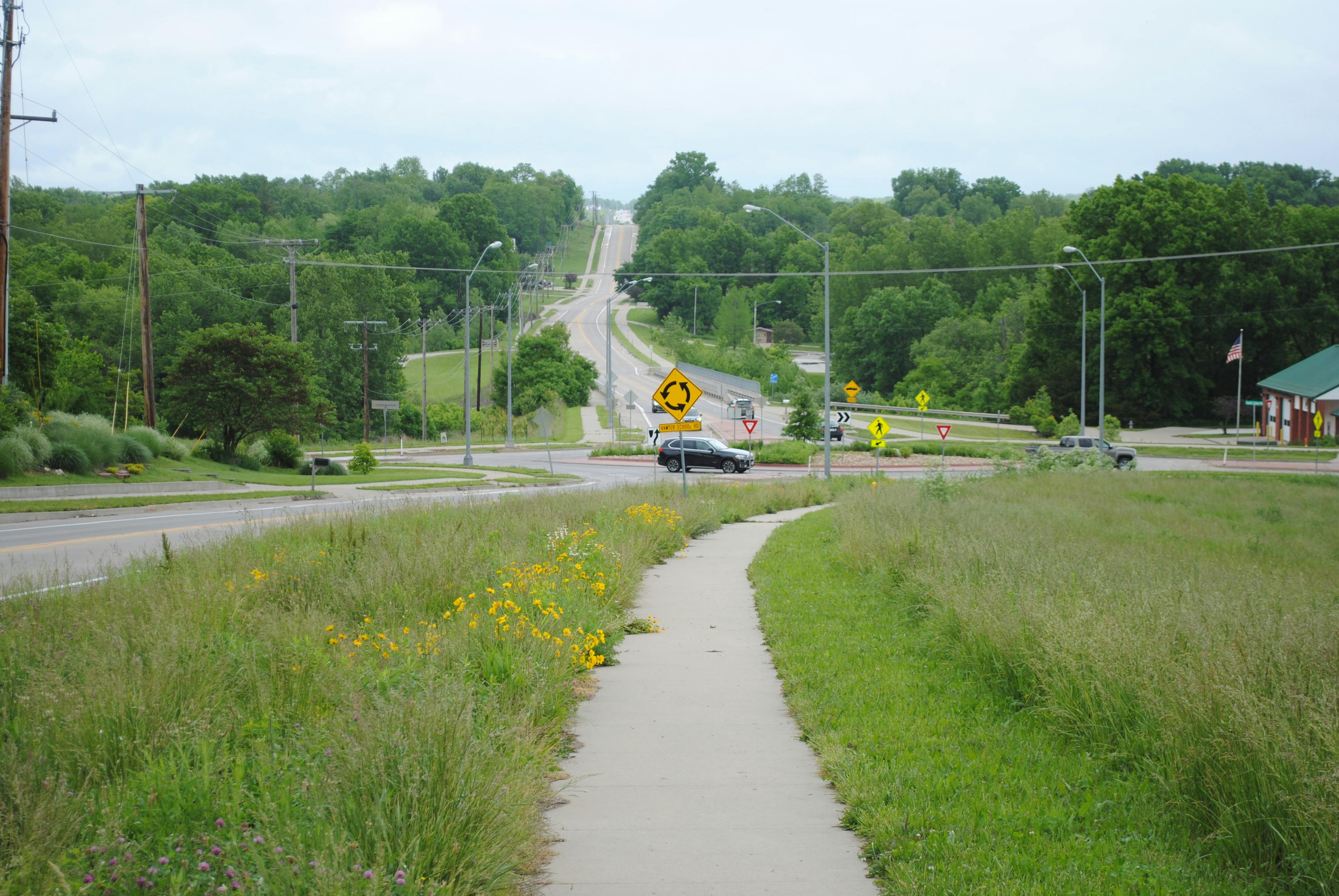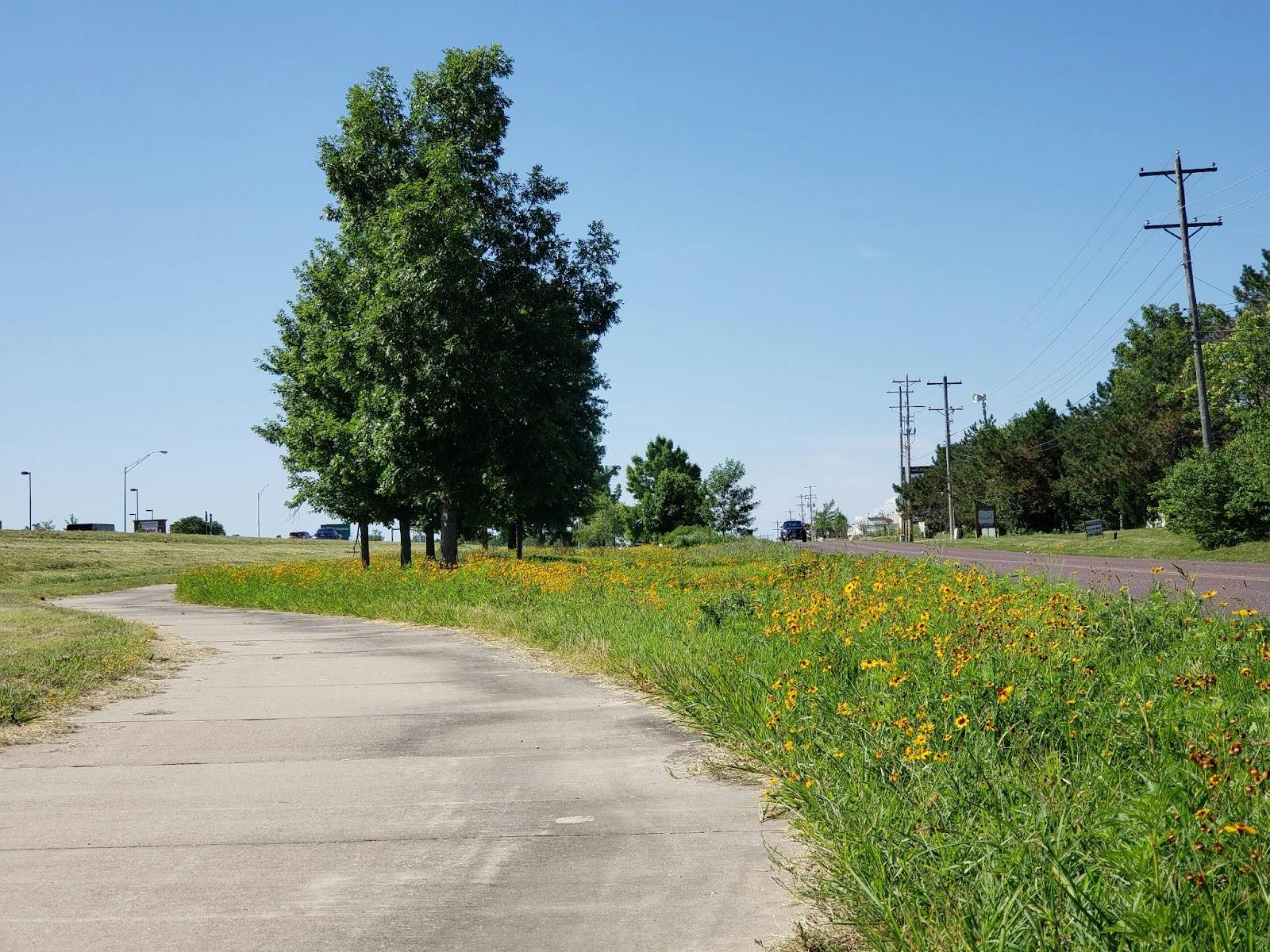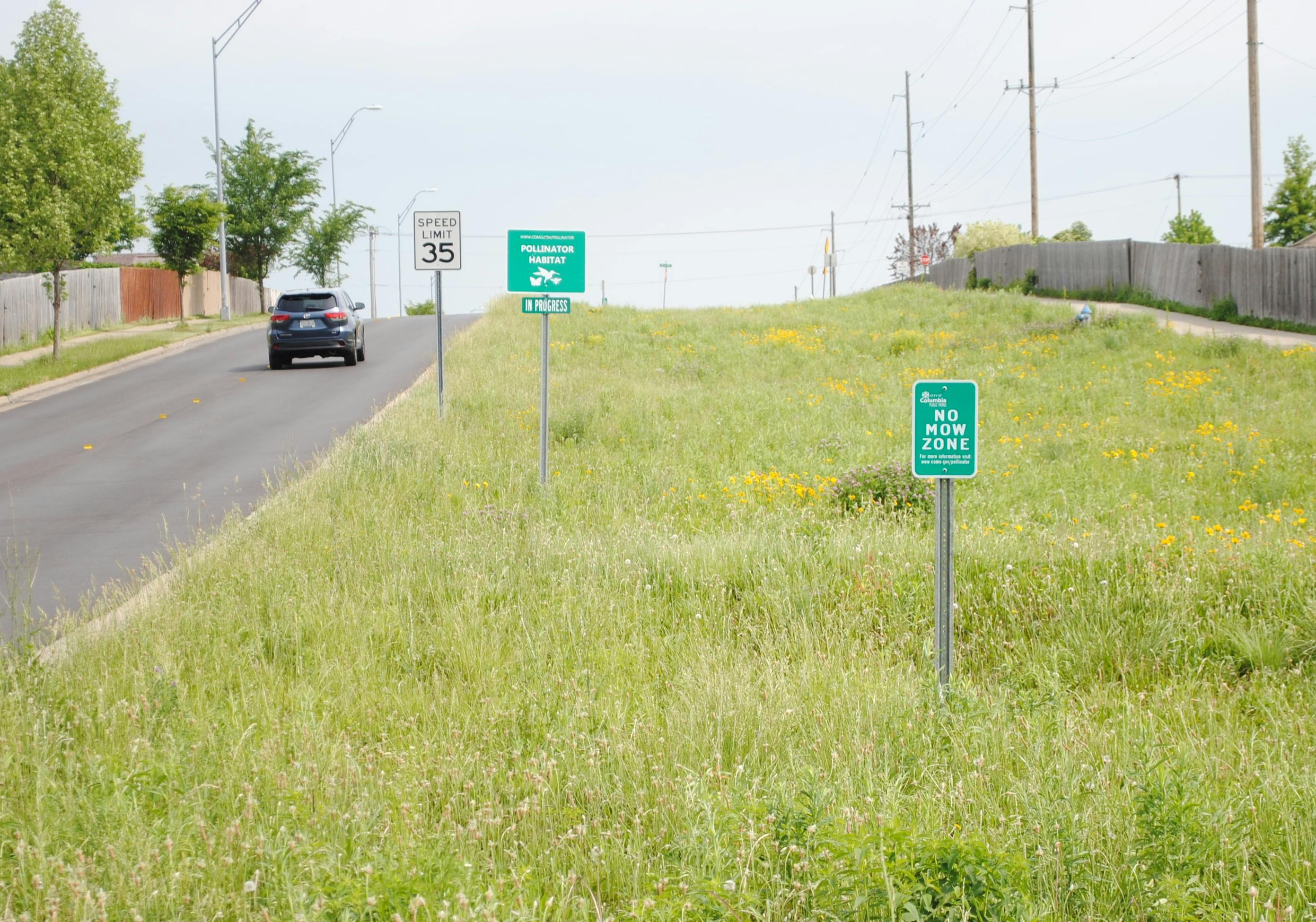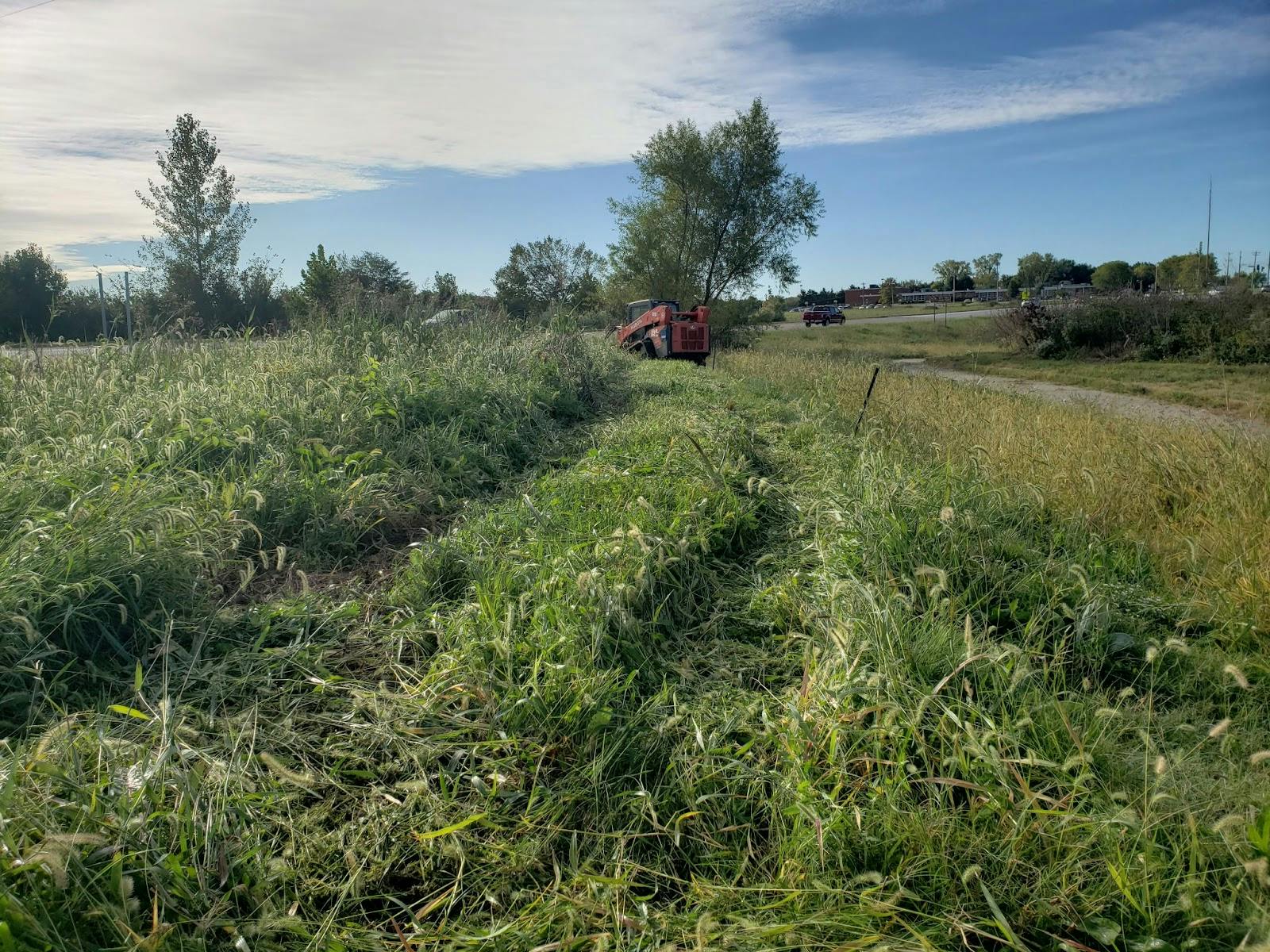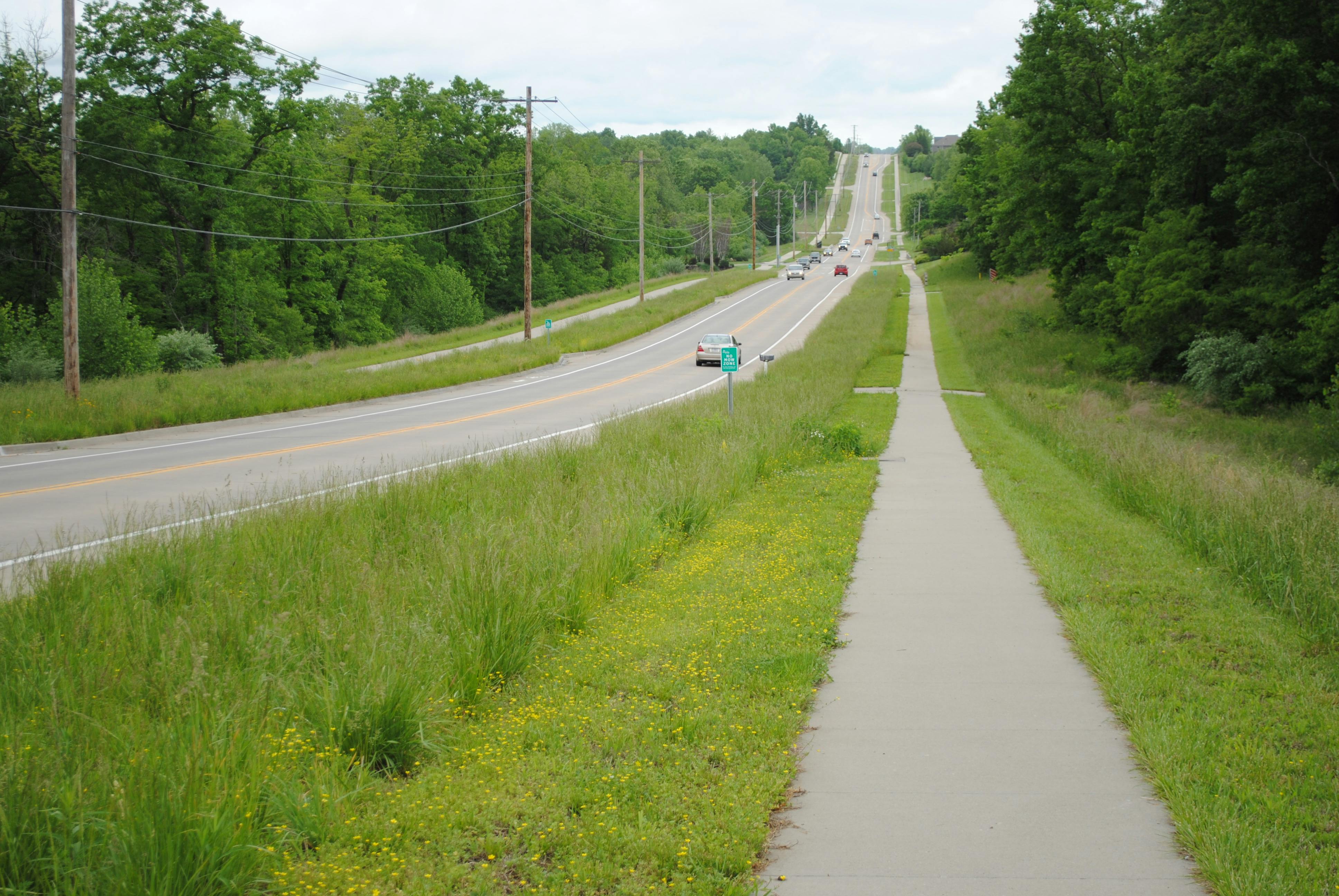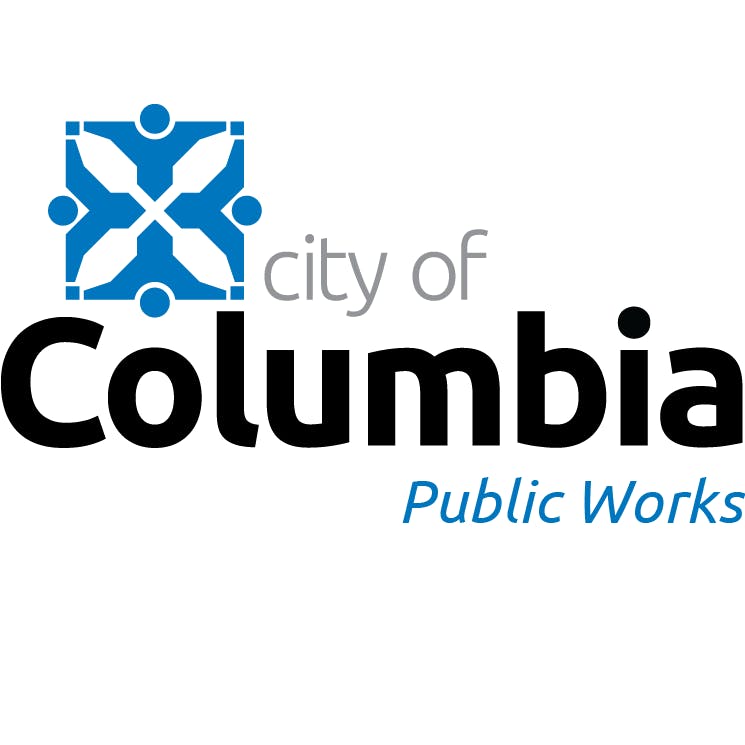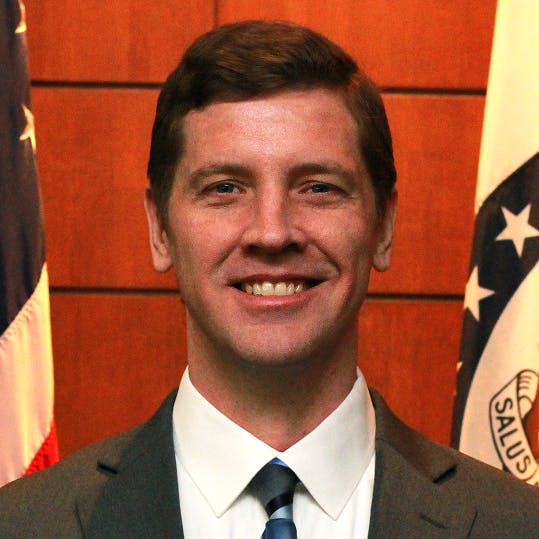Roadside Pollinator Program
For over a decade, Columbia has used native plants as infrastructure in landscaping, rain gardens, natural areas, golf courses and along streets. In 2019, the Public Works department, in collaboration with the Office of Sustainability, initiated the Roadside Pollinator Program (RPP). The RPP converts areas with mowed turfgrass alongside streets and in medians and roundabouts to native prairie vegetation.
Thirty years ago, monarch butterflies could easily be seen fluttering through Stephens Lake Park, or any Columbia neighborhood. These days, fewer and fewer monarch butterflies are flying around Columbia. In 2013, winter monarch population estimates showed a 90% decrease in their overall population. This decline in the monarch population mirrors the decline of other prairie-dependent insects and songbirds.
Many of these prairie-dependent insects and songbirds are considered pollinators, fertilizing plants through pollen transfer while feeding. Without them, 88% of the world’s plants would not be able to reproduce (Ollerton 2011). Approximately one-third of our food is pollinated by a bee, butterfly, mammal or bird, contributing $235 to $537 billion in food production to the global economy (Food and Agriculture Organization of the United Nations (FAO) 2016). Similar to the monarch butterfly, more than 40% of the world’s insect pollinators are facing extinction (FAO 2016).
The City of Columbia is taking action to curb the decline of pollinators and other wildlife through education and outreach, habitat restoration, and policy. In November 2016, City Council signed the National Wildlife Federation’s Mayors’ Monarch Pledge that states that the City of Columbia will take action to educate the public on monarch decline and restore native habitat to support the monarch butterfly and other pollinators.
The Roadside Pollinator Program honors the Mayor’s Monarch Pledge by restoring pollinator habitat along City of Columbia roadsides.
Sites were selected by the streets division and the City’s Community Conservationist. Site selection was based on habitat potential (including location and size), proximity to infrastructure, the safety of pedestrians, motorcyclists, bicyclists and motor vehicle drivers. Additional considerations include the timing of planned construction and road work and neighborhood aesthetics. The first phase of the program will convert selected roadsides, medians and roundabouts on Scott Boulevard, North Providence Road, South Providence Road, Rangeline Street and Discovery Parkway.
If you would like to request an agreement regarding the maintenance of public right-of-way, please complete the Landscape Maintenance Agreement Request form below. Following your request, a City staff member will contact you to begin the agreement process.



